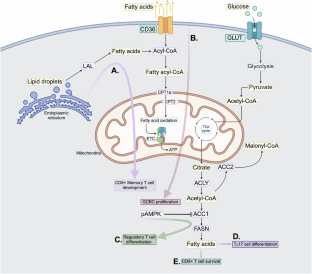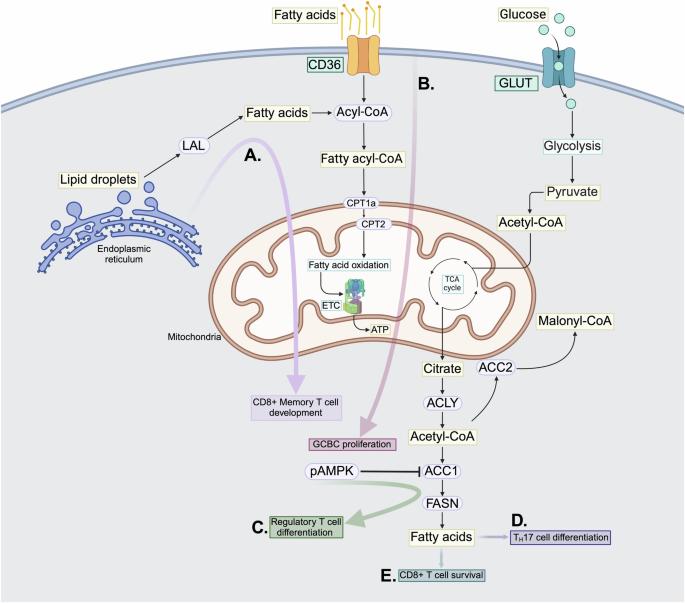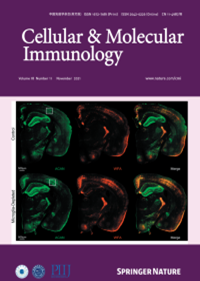代谢紊乱对适应性免疫的影响
IF 21.8
1区 医学
Q1 IMMUNOLOGY
引用次数: 0
摘要
免疫系统在保护机体免受病原体入侵和维持组织平衡方面发挥着至关重要的作用。维持脂质代谢平衡是免疫细胞有效发挥功能的一个重要方面,如果免疫细胞功能受到破坏,免疫细胞的功能就会受损。许多代谢性疾病都会导致全身脂质代谢和细胞功能受损。在代谢性疾病中,慢性炎症被认为是导致疾病进展的主要因素。代谢性疾病中导致组织功能障碍的一个主要因素是异位脂质沉积,而异位脂质沉积通常是由饮食和遗传因素造成的。因此,我们提出了一个观点,即与代谢性疾病中的组织和器官损伤类似,免疫细胞中脂质的过度积累也会导致免疫系统功能失调(超越了传统的泡沫细胞),并导致疾病的病理变化。在此,我们回顾了通过饮食进行脂质积累可通过改变细胞脂质含量来调节免疫细胞的生成和功能的证据。这会影响免疫细胞的信号、活化、迁移和死亡,最终影响免疫系统的关键环节,如中和病原体、抗原递呈、效应细胞活化和消除炎症。本文章由计算机程序翻译,如有差异,请以英文原文为准。


The influence of metabolic disorders on adaptive immunity
The immune system plays a crucial role in protecting the body from invading pathogens and maintaining tissue homoeostasis. Maintaining homoeostatic lipid metabolism is an important aspect of efficient immune cell function and when disrupted immune cell function is impaired. There are numerous metabolic diseases whereby systemic lipid metabolism and cellular function is impaired. In the context of metabolic disorders, chronic inflammation is suggested to be a major contributor to disease progression. A major contributor to tissue dysfunction in metabolic disease is ectopic lipid deposition, which is generally caused by diet and genetic factors. Thus, we propose the idea, that similar to tissue and organ damage in metabolic disorders, excessive accumulation of lipid in immune cells promotes a dysfunctional immune system (beyond the classical foam cell) and contributes to disease pathology. Herein, we review the evidence that lipid accumulation through diet can modulate the production and function of immune cells by altering cellular lipid content. This can impact immune cell signalling, activation, migration, and death, ultimately affecting key aspects of the immune system such as neutralising pathogens, antigen presentation, effector cell activation and resolving inflammation.
求助全文
通过发布文献求助,成功后即可免费获取论文全文。
去求助
来源期刊
CiteScore
31.20
自引率
1.20%
发文量
903
审稿时长
1 months
期刊介绍:
Cellular & Molecular Immunology, a monthly journal from the Chinese Society of Immunology and the University of Science and Technology of China, serves as a comprehensive platform covering both basic immunology research and clinical applications. The journal publishes a variety of article types, including Articles, Review Articles, Mini Reviews, and Short Communications, focusing on diverse aspects of cellular and molecular immunology.

 求助内容:
求助内容: 应助结果提醒方式:
应助结果提醒方式:


